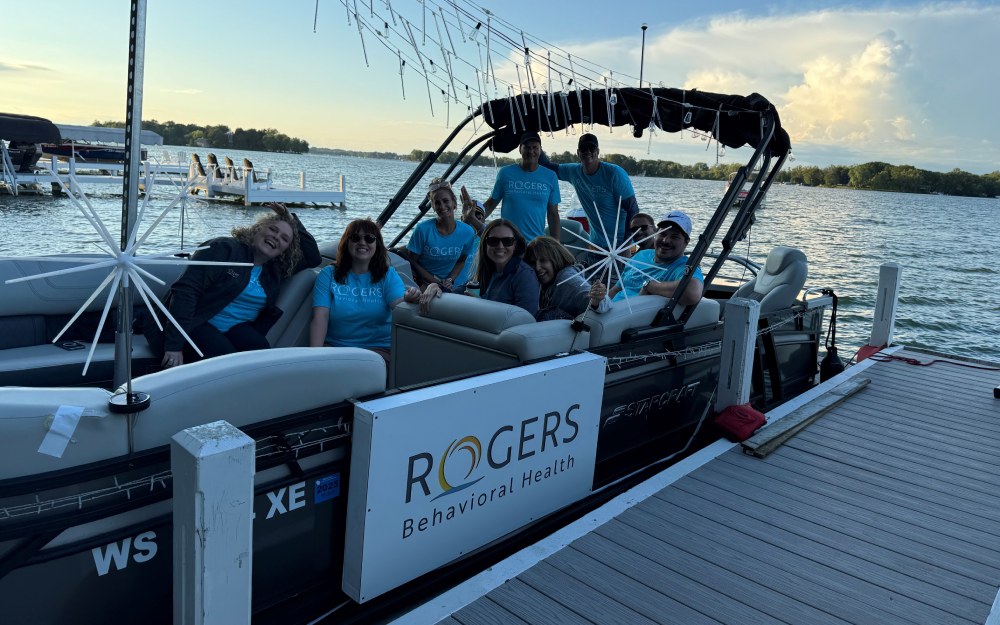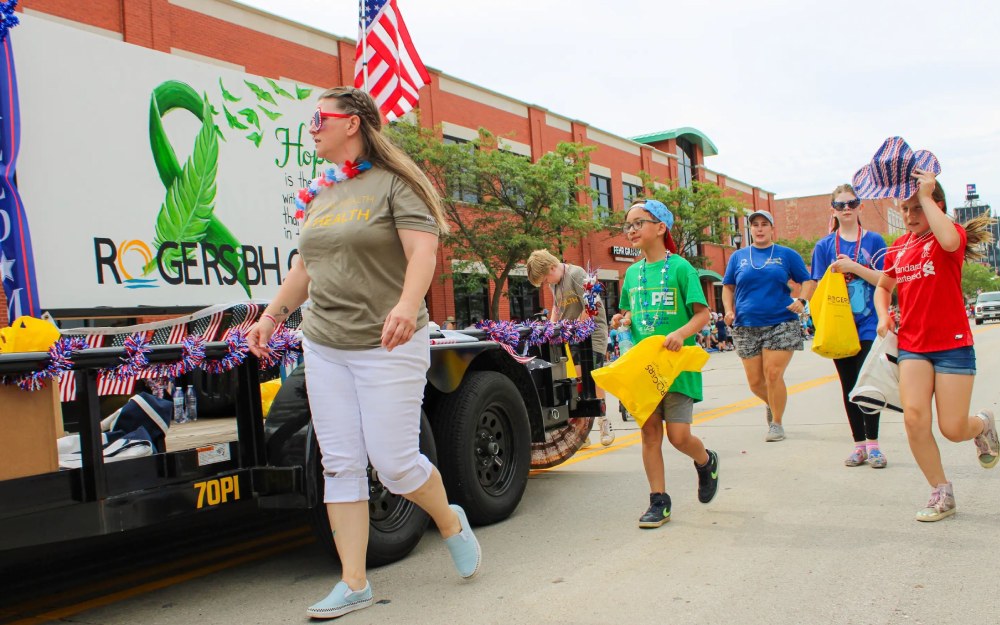
Teaching compassion resilience
07/06/17 05:03:pm
“Our education helps professionals build their compassion resilience to ensure they are in a position of empathy, strength, and hope after their daily exposure to the extreme challenges faced by people in our care,” shares Sue McKenzie, Rogers InHealth co-director.
In the past year, InHealth has conducted six training series with over 75 participants and presented at conferences such as the WI Chapter of the American Psychiatrists Association.
Trainings are provided in a flexible format to meet the needs of the group. For example, our Brown Deer Child and Adolescent Inpatient team took part in multiple 30 minute sessions, while a cohort of Milwaukee youth serving agency leaders attended four off-site day retreats. InHealth directors, Sue McKenzie and Suzette Urbashich, provide the facilitation for these events and often include community partner, Debbie Lassiter, executive director of Convergence Resource Center.
Strategies shared in compassion resilience education include:
-
Exposing ourselves to the resilience of people we serve and apply the same strategies we use to build others’ resilience to ourselves.
-
Practicing setting compassionate boundaries in our professional and personal life.
-
Understanding the limitations of our role and the roles that others ply in the lives of the people we serve.
-
Engaging in self-care that begins with identifying what you can avoid and considering what needs a new perspective and then doing things like yoga, mindfulness, spending time in nature, eating healthy foods, and getting more sleep.
“Secondary Traumatic Stress and compassion fatigue are NORMAL responses to ABNORMAL circumstances which may result in a lessening of our compassion over time which can lead to avoidance and a sense of ineffectiveness,” reminds Suzette Urbashich, Rogers InHealth co-director. “Awareness of the indicators of compassion fatigue and strategies to build compassion resilience are important skills that can enhance job satisfaction and reduce turnover.”
Feedback from participants has been extremely positive. One participant reported the training provided opportunity, space, and permission to address self-care and compassion resilience and commented, “When I found myself hanging on by a thread, you made me believe I could (and did) make it.”
An attendee of the training series shared, “As a manager, I have brought every lesson from the first meeting to the last to my team and those who attended are asking for more. The training has given me the language and tools to not “throw in the towel” but to find ways to take care of myself on a personal and professional level in order to continue doing the important work we do.”
Another participant commented, “It was really crucial, as a supervising staff, to be taken out of my work environment to process and develop what compassion resilience could look like for our organization. It freed my time and mind to allow me to consider possibilities. I also appreciate resources were given to take back and use with staff.”
InHealth also offers compassion resilience education and training customized to meet scheduling and department/program needs at Rogers. For questions/more information contact Sue or Suzette at inhealth@rogershospital.org





